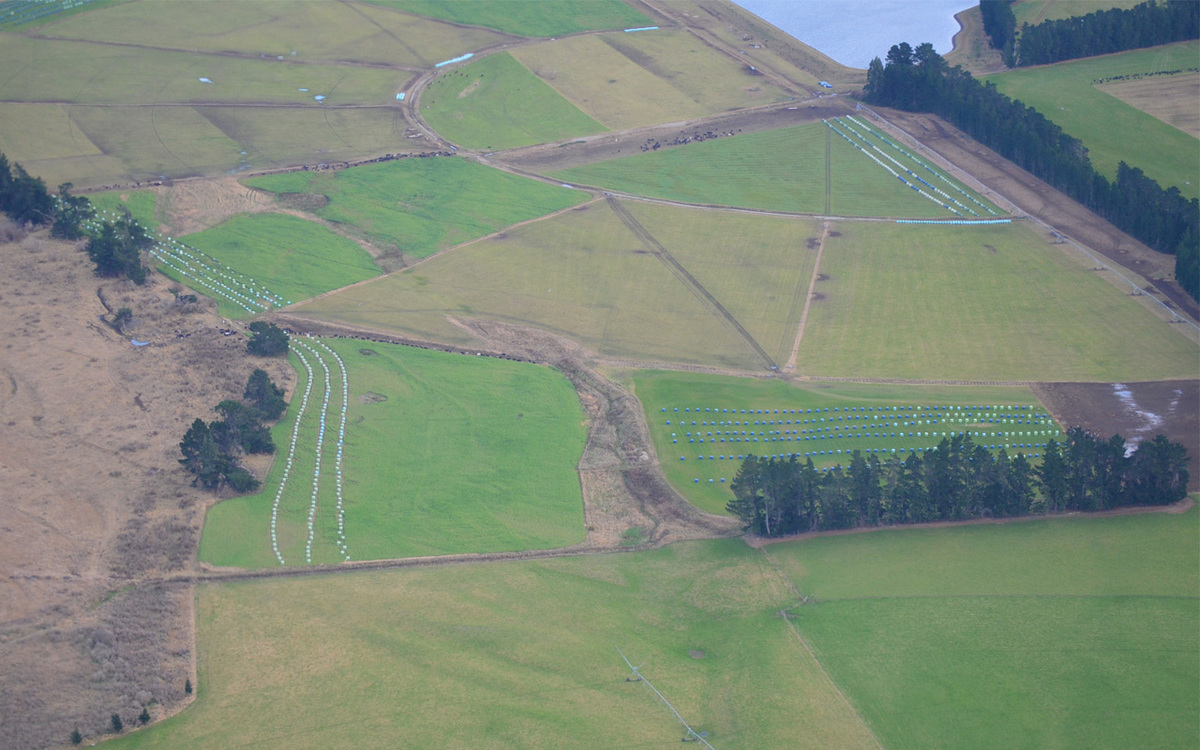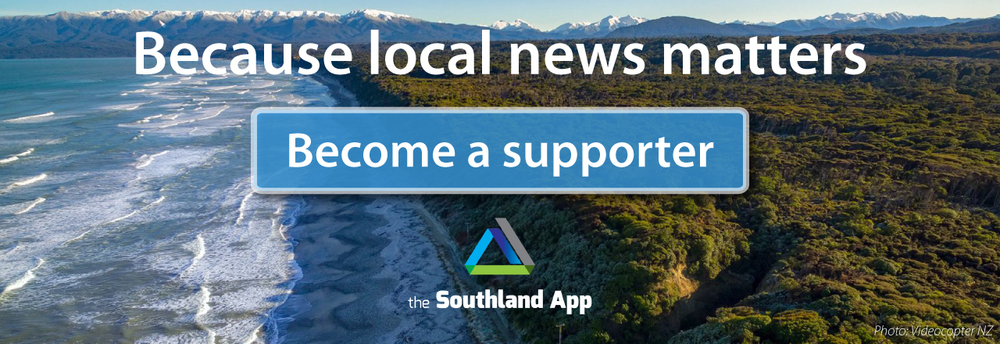Southland winter feed under pressure
Marjorie Cook
17 June 2020, 5:56 PM
 Environment Southland has this week begun aerial monitoring of winter grazing practices around Southland. PHOTO: Environment Southland
Environment Southland has this week begun aerial monitoring of winter grazing practices around Southland. PHOTO: Environment SouthlandMany Southland farmers are not likely to send feed donations to their drought-stricken northern colleagues this winter because they need it for their own stock.
Federated Farmers Southland vice-president Bernadette Hunt told the Southland App she had received several calls from farmers asking how to donate or make feed available to North Island farmers, who are suffering their worst drought in 30 years.
Mrs Hunt said Southern farmers were traditionally generous in supporting other regions in need and wanted to help.
But the costs of transporting feed north was an “absolute barrier” for some farmers, while others had their own feed shortages after a “terrible spring”, she said.
Southland farmers endured a long, wet spring, meaning crops were planted late and growth was slow.
Planting that usually occurred in October or November did not take place until December of January.
“Then the floods [in February] wiped things out and took away a whole lot of baleage. We were fortunate to have a kind end to autumn, but there are concerns about feed being trucked out of Southland,” Mrs Hunt said.
After the floods, urgent repairs were done quite rapidly. However, the worst affected farmers had been chipping away at repairs for a long period of time and some were facing long term consequences, Mrs Hunt said.
Loading up a truck and trailer with 40 to 50 bales of feed and sending it over the Cook Strait to the North Island would “easily” cost at least $3000 per load, and 40 bales did not go very far, she said.
COVID-19 restrictions on meat processing factories from March has also resulted in overstocking on farms in both islands, putting additional pressure on feed.
Meanwhile, Environment South undertook its first aerial survey of farms for the winter on Tuesday (June 16), checking for compliance with winter grazing action plans.
Last winter, some Southland farmers faced heavy criticism from environmentalists, after photographs of stock standing in mud were published.
Following a nationwide anti-grazing campaign, Agriculture Minister Damien O'Connor set up a taskforce to review winter grazing practices and make recommendations to the pan-sector Winter Grazing Action Group.
The Southland farming community has met regularly with rural advisory bodies and government agencies.
Action plans have been prepared and if anyone raises a concern, an intervention group is ready to step in and support farmers to address the issue.
Mrs Hunt said it was good that Environment South had begun surveying now, giving people an opportunity to rectify any concerns before winter closed in.
“A supportive approach will be essential this year, with many farmers in the region already under significant pressure from poor growth conditions, flood impact and imposed overstocking due to the processing constraints of COVID-19,” Mrs Hunt said.
Environment Southland chief executive Rob Phillips said early observations from the preliminary flight suggest a better uptake of good management practices, such as fencing of waterways and the creation of buffer zones, with no immediate compliance concerns identified.
“I’m encouraged by what we’ve seen. Farmers appear to have made a real effort, which is exactly what we need. We are mindful that it’s still early in the season and this was only a preliminary flight to get an indication of any issues. Wet weather is inevitable and while this will present challenges, we expect farmers to continue their focus on good wintering practice.”
Tuesday’s flights covered a large portion of Southland, from Tussock Creek through to Garston and Mossburn and then some of the Western Southland area.
“Staff are still working through the information and photos gathered during the flight and at this stage it looks like we will be looking to arrange follow up advice for a handful of properties that could be a at risk of winter grazing issues in wetter weather.”
“A lot of effort has gone into ensuring farmers understand what is expected of them and providing the advice and information to help them get there. This year we look forward to seeing a sustained improvement that Southland as a whole can be proud of,” he said.
If anyone is concerned about winter crop grazing practices anywhere in the country, please fill in the online form on the Federated Farmers website, or call 0800 327 646.
AG | TRADES & SUPPLIES
AGENTS



